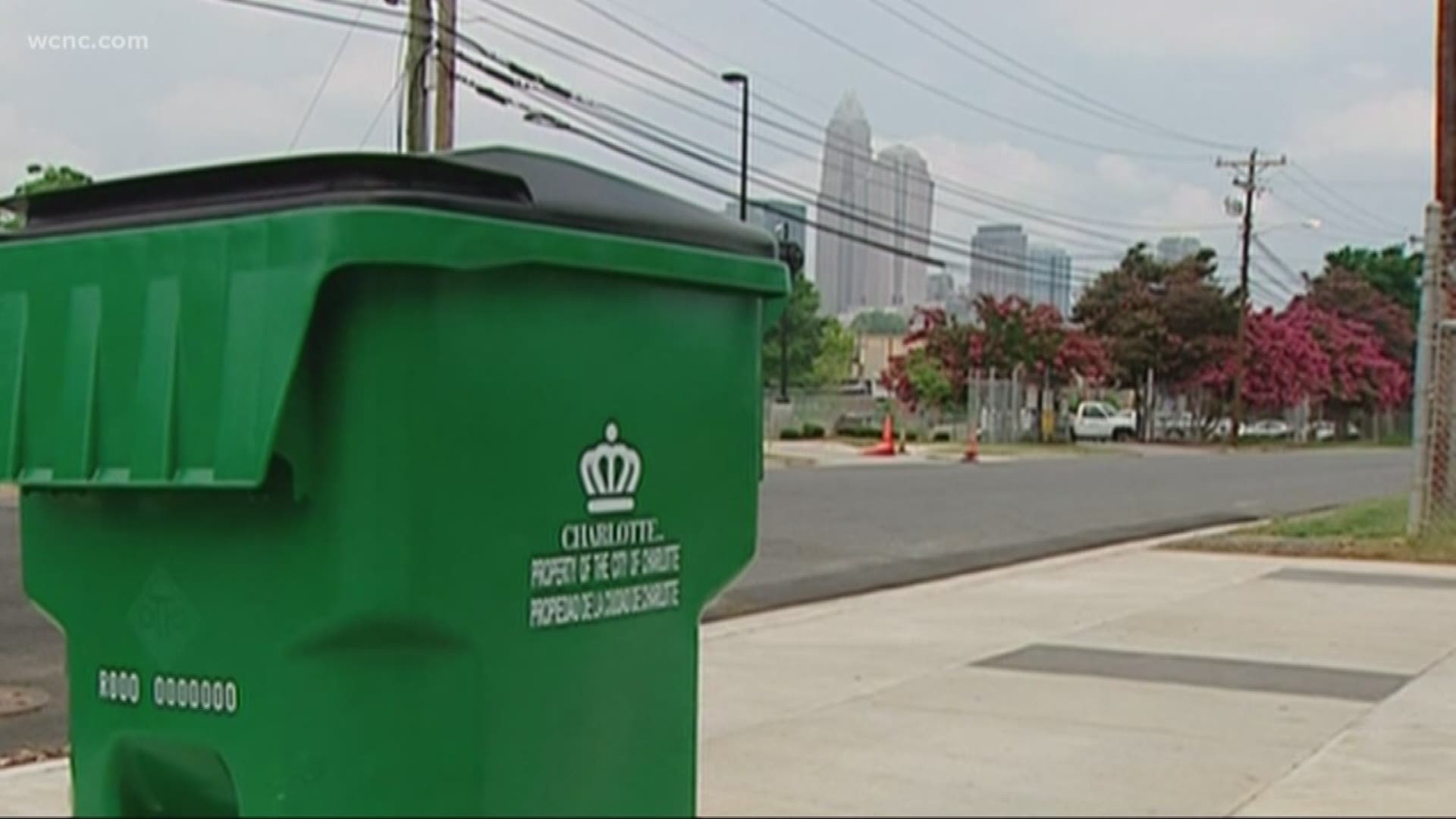CHARLOTTE, N.C. — Believe it or not, you may be doing more harm than good when it comes to recycling.
The things you think are being salvaged may actually be ending up in a landfill, costing taxpayers millions of dollars.
It's a big problem in Mecklenburg County because more and more people are moving here every day. And with those people comes more trash.
"We call it wishful for recycling," said Jeff Smithberger, director of solid waste for Mecklenburg County.
Smithberger has more than 100 employees working two shifts at the recycling facility, spending hours sorting through items that end up never being recycled at all. Basically, you're wasting your time and taxpayer money if you don't educate yourself.
"Our biggest issue with our customer base is that they really want to be good recyclers, but sometimes they don't understand how to be good recyclers," Smithberger told NBC Charlotte.
Here's the issue: Many items are, in fact, recyclable, but county facilities just aren't equipped to handle certain types of items.
- Plastic bottles
- Cardboard
- Aluminum cans
- Cartons, juice boxes
- Paper, newspaper, junk mail
- Glass bottles and jars
- Empty aerosol cans
- Cereal and food boxes
- Cardboard boxes
- Magazines
- Tin and steel cans
- Food
- Plastic bags
- Shredded paper
- Hoses
- Diapers
- Pots and pans
- Light bulbs
- Paper plates, napkins
- Ceramics, glassware
- Hangers
"If someone is at home and they have a bunch of recyclable goods and they throw them in a plastic bag, chances are all of that may be thrown away because they're in a plastic bag?" asked NBC Charlotte's Mark Boyle.
"Absolutely. We do not want any materials in plastic bags, and we cannot recycle plastic bags," said Smithberger.
Back to the cost of paying for your mistakes, when something doesn't make it through the plant to be sold as a recyclable good, it's sent to the landfill. Trucking all that trash is not cheap.
"Cost us unfortunately about $1.6 million a year to deal with unwanted recyclables," Smithberger said.
So before you put what you think is recyclable into the bin on the street corner, think again. What you do today can help make the world a better place tomorrow.


